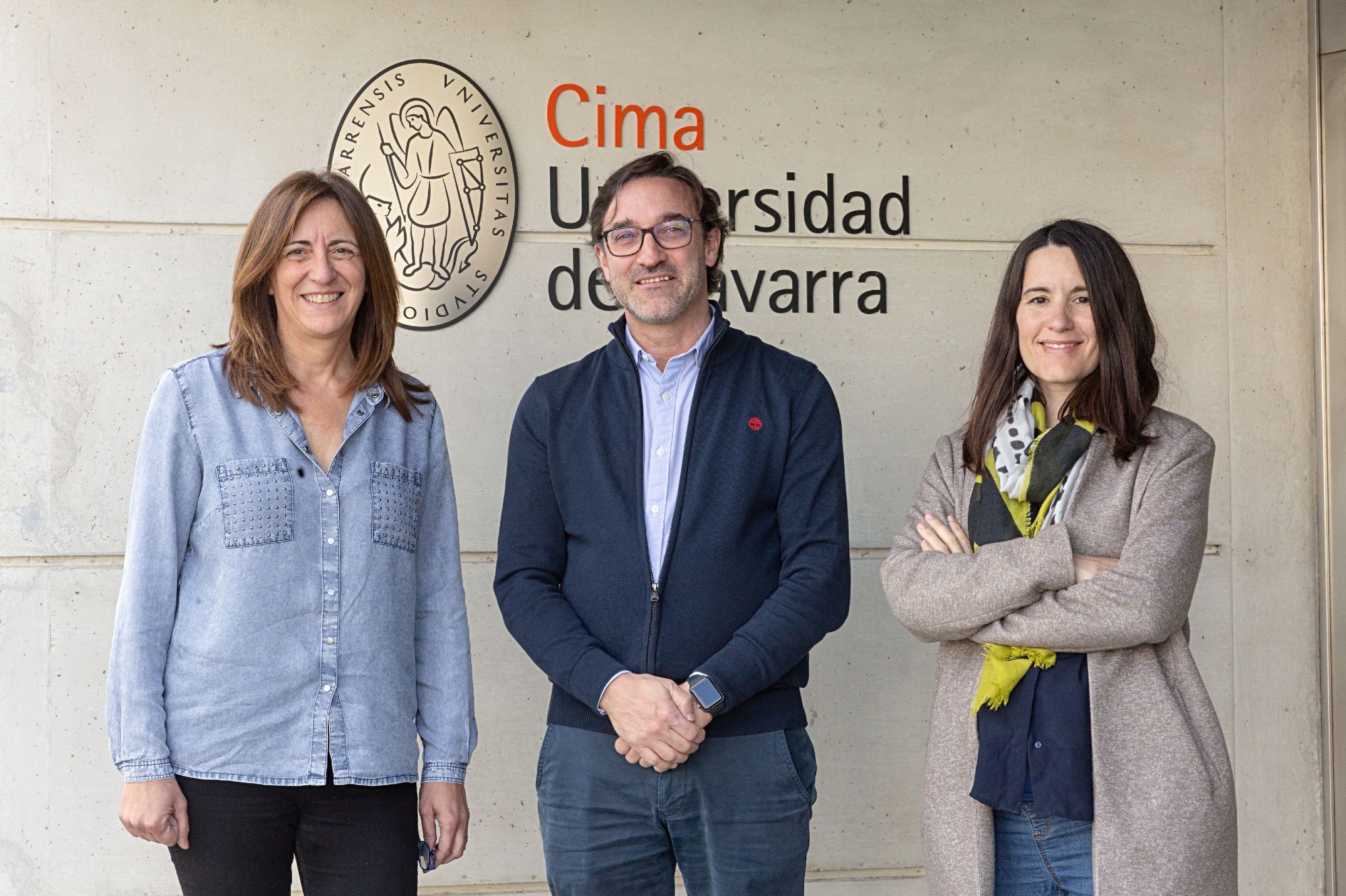Researchers from the Cima University of Navarra (Spain) have presented the results of an international competition initiated ten years ago to improve the study of cell migration. The Cell Tracking Challenge confirms that software based on artificial intelligence poses a paradigm shift in the research of normal cell biology and pathological processes, such as cancer or tissue regeneration.
 Ainhoa Urbiola, Carlos Ortiz de Solorzano and Cristina Ederra, Cima Universidad de Navarra Researchers. Image Credit: Cima University of Navarra
Ainhoa Urbiola, Carlos Ortiz de Solorzano and Cristina Ederra, Cima Universidad de Navarra Researchers. Image Credit: Cima University of Navarra
Cells move to perform their functions, for example, during embryonic development, where cells are highly mobile. Therefore, it is essential to understand how they move from the initial stages to the complete development of the embryo and to know which cells will give rise to which organs depending on their migration within the embryo. But cells also move in pathological processes, during the development of cancer and metastasis, or in the wound healing process.
"Traditionally, researchers carried out this study visually, which is extremely laborious and often impossible. Thus, ten years ago, we launched a challenge to promote the development of computer programs capable of carrying out cell tracking automatically. During this time, we have created a highly diverse database of videos on which to test these programs. Furthermore, we have established objective measures and common metrics to evaluate the accuracy of the different programs received”, explains Dr. Carlos Ortiz de Solórzano, director of the Biomedical Engineering Program at the Cima University of Navarra and coordinator of the international competition. The scientific journal Nature Methods publishes the results of this challenge in its latest issue.
Artificial Intelligence
The challenge organizers, including groups from Spain, Germany, the Czech Republic, the United States, and Australia, have evaluated 80 programs submitted by 50 research groups worldwide.
Among the data that the participants have analyzed automatically, there are large videos (more than 300GB), such as the one containing the embryonic development of the red flour beetle (Tribolium castaneum) or other similar embryonic models widely used in biomedical research. Due to their size and complexity, these videos test the ability of programmers to manipulate and analyze large amounts of data,"
Carlos Ortiz de Solórzano.
One of the most interesting conclusions reached by the challenge organizers is that cell recognition and tracking using artificial intelligence-based methods offers better results than conventional techniques. "Due to the emergence of these methods, which require a lot of data for training, we have made available to the scientific community a "Silver Ground Truth," i.e., an extensive set of automatically annotated data, based on the combination of the best solutions submitted by the participants," adds the project coordinator.
Following the results obtained, the challenge will continue to collect new programs to study the ability to detect cell divisions correctly and to reconstruct complete cell trajectories.
Source:
Journal reference:
Maška, M., et al. (2023). The Cell Tracking Challenge: 10 years of objective benchmarking. Nature Methods. doi.org/10.1038/s41592-023-01879-y.